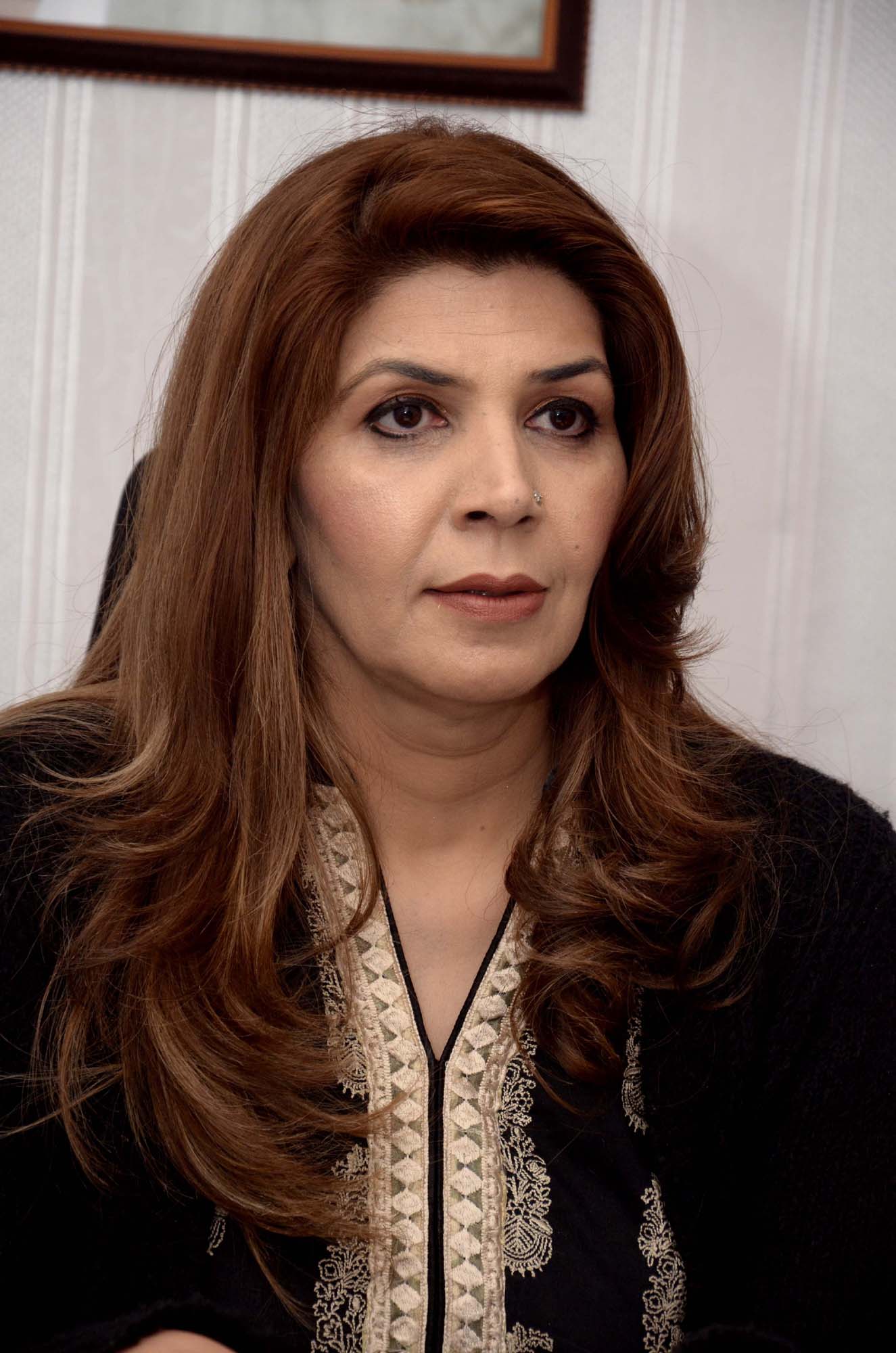Nothing sensitises one to others pain than having acutely felt it yourself. Having lost her mother in post-op care after an open heart surgery four years ago, co-founder and CEO of recently-established urgent-care hospital Cosmos Health Services Ashba Kamran embarked on a research to provide a platform for patients’ pre- and post-operations.
“There is a gap between the patient and the nurse, and then the nurse and the doctor,” said Ashba. Starting from a palliative nursing home in 2013, she has now expanded into a full-fledged medically equipped center for caring for patients with terminal and traumatic illnesses.
On December 10, 2017, Cosmos signed a joint venture with Thailand’s World Medical Centre (WMC) to set up 100 acute hospitals and urgent care clinics all over the country.
Even before Cosmos, Ashba was no stranger to caring for the needy. Her dyslexic son, who is now aged 25 and is a professional photographer, gave her impetus to enter hospitality industry years ago. Her Green Meadows School for children with learning disabilities now has 500 children enrolled. As she put it, “Suffering through the inability of doctors to care for my mother after her operation, I realized that this is a major gap in Pakistan’s healthcare sector and I decided to bridge it.”

“Pakistan’s finest health care is just not good enough. The word hospital [root: from Latin, hospes] stems from hospitality. But hospitals here are just a building. The private sector is as bad as the public, because when the latter fails to bring any competition to the former, the bare minimum suffices for them too,” says Ashba.
There is no accountability or credibility for private sector hospitals and no regulatory body to keep a check on the services, which is a must given the circumstances, lamented Ashba. “They have started with the Punjab Healthcare Commission but it is still not following the standards that are internationally accepted.”
There is no concept of allied urgent care in Pakistan. The only hospitals that exist, both public and private, are acute care hospitals. “All around the world there are acute hospitals, and then there are nursing homes, and urgent care.”
About 60 percent of the occupancy in a regular hospital, said Ashba, is by the terminally ill patients because there is no concept of hospitals primarily for patients with non-traumatic or terminal illnesses – neither requiring a long-term treatment. “Patients who are terminally ill are only left with the regular hospitals and lengthy bills despite not being under treatment of any kind. There is no infection control or any other services that is required by terminally ill patients.”

Satellite hospitals, need of the hour
She believes that it is better to have small satellite hospitals for terminal as well as non-traumatic illnesses. She is also of the opinion that satellite hospitals will help people avoid the long commutes they have to make to reach a hospital for general health issues like gastro.
Recounting how her two-bedded facility grew into a complete equipped hospital she said, “I brought a Hungarian girl on board to train my nurses. She had worked in such institutions before. When we started training our first batch of 20 nurses, we found that all they knew was to put up a granula.” About 12 weeks later only two of them stayed, 18 leaving on account for not being paid for the training time or for requiring to sign a bond with Ashba’s institution. “The two who stayed are still with me and now I have a total of 35 nurses working here.”

According to Ashba, the capital investment required by this 12-room facility with an additional three-bed emergency department was around Rs50 million. “That’s the cost for one urgent care hospital. We are also in the process of launching an acute hospital which we will launch in the first week of January.”
She did not share any further details about the acute hospital project, but said that the urgent care and the hospital will both refuel each other in terms of patients as well as finances. “The non-traumatic patients will come here and patients with traumatic illnesses would be shifted there. We will also introduce mothercare concept of well-baby, sick-baby in Pakistan and it will be at work here.”
Cosmos also has the online pharmacy channel Sehat on board as the medicine supplier. It is a channel of Apothecare (Pvt.) Ltd. – a venture by Fazal Din family, and will continue to be a part of expansionary plans of Cosmos.
Location: Hub of healthcare
Regarding the business perspective of her venture, Ashba said that there is an obvious need and when the product is available, the customers will come. “We started marketing ourselves with small lunch gatherings to introduce people to the idea. We invited the general public as well as some doctors so they could come and see. For patients, it is a convenience of healthcare while for doctors it is an additional opportunity to work.”
This is also the reason, Ashba said, that determined the location for her hospital. “It is a hub of healthcare, surrounded by Shaikh Zayed Hospital, American Eye Center (MediVision Hospital), Bridge Rehab and Psychiatric Services, and Doctors Institute of Medical Sciences, among others.
She dismissed the idea that having hospitals around the would serve as a competition, rather opined that it will be suitable for doctors from those hospitals to continue their practices as well as be part of visiting faculty for Cosmos. “For patients too it will be easier to shift to Cosmos from nearby hospitals.”
For the product positioning and pricing, Cosmos CEO said that it is a premium product but priced at par with the private hospital costs. “What we are trying to convey is that our services are better and still cheaper than the services of regular hospitals.”
The consultancy fee is standardized, somewhere between Rs3,000 and Rs5,000, depending on which doctor the patients want to consult. “We can call the doctors of their choice as visiting doctors, but that also means that different doctors will charge different consultancy fees,” said she. The CEO said that she will also eliminate the waiting line practice for her patients, making online appointments available for her patients as long as they are punctual. “We are also going to implement the Health Management Information Systems (HMIS).”
As an organization Cosmos has per hour wages contracts with the doctors. It gives the hospital more independence and limits the working hours per doctor. “One doctor cannot work more than 168 hours a month. We have doctors here who are either running their own practices or are studying in their final year in the medical colleges. We also have specialists on call, but the General Physician is here all the time,” Ashba explained.

Cosmos also plans to work with government sector but as independent managers, and only for burn centers. “That is something that you cannot manage on your own but it is also better to run the ones already established instead of making new ones. We will manage them independently through a corporate structure.” She said that the financing and running of the center will also be done by Cosmos without any control by the government, if such an agreement ever comes into play.
She, however, has strong sentiments when it comes to government’s role in the healthcare center. “The MS of hospitals should be trained in management and hospitality. Being a doctor isn’t enough. Then regulatory bodies also need to be made, and instructed to be strict in regulating hospitals according to international standards.”
Her opinions for managing a hospital are equally uncompromising. “Don’t break the chain. The culture here in Pakistan of pulling friendships to get your work done, just because you know someone in the management is the problem. If someone goes to my directors and asks them to do something that only I have the authority to do, my directors don’t break the chain and rather send them to me. Likewise as the chief executive, I am running the show but I am not in the forefront and I leave that job to the people concerned instead of forcing my authority.”
Sharing her plans for the future, she concluded, “We see ourselves as the healthcare platter with 10 top care hospitals at par with the international standards in the next three to five years.”





















